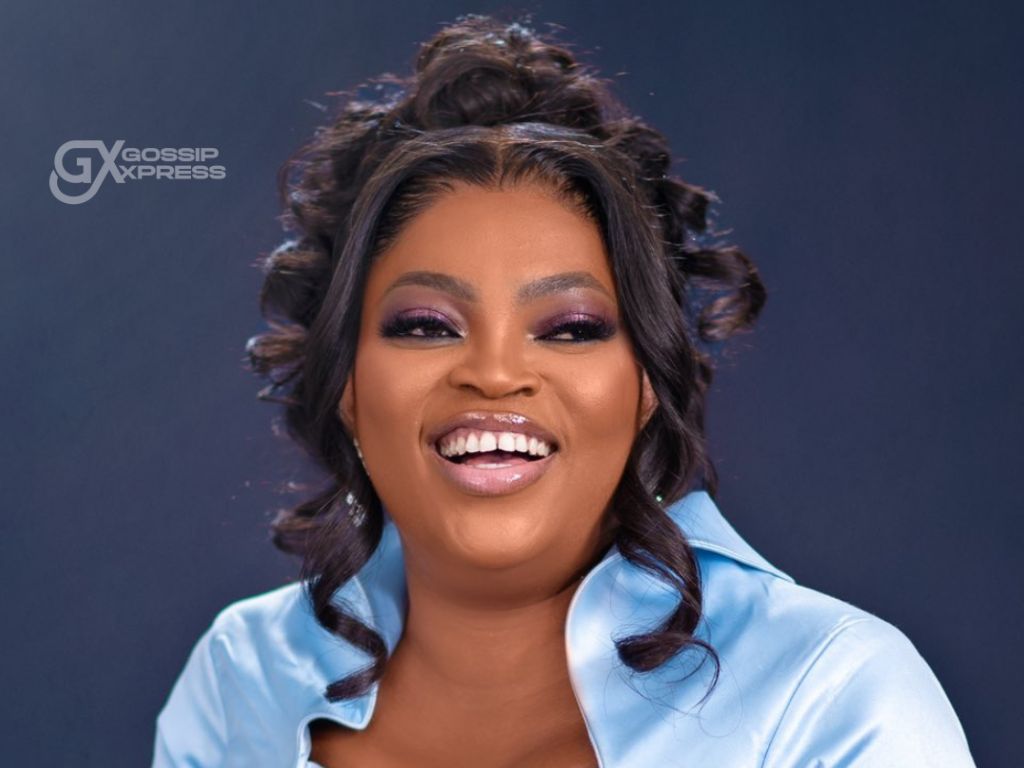Award-winning filmmaker and actress Funke Akindele has opened up about her humble beginnings in Nollywood, revealing that she once broke down in tears after shooting her very first acting scene, being one of her major challenges.

Speaking in a candid conversation on the Teju Babyface Deep Dive Podcast, the Battle on Buka Street director reflected on her early struggles, insecurities, and the pressure she faced trying to make a name for herself in an industry that wasn’t always welcoming.
“I cried after my first scene,” Akindele confessed. “I felt like I wasn’t good enough. I kept asking myself, ‘Is this really for me?’ But that experience built me. It taught me resilience.”
Before becoming one of the most bankable figures in African entertainment, Funke Akindele faced numerous rejections and self-doubt.
She recalled her early auditions, where casting directors often dismissed her or told her she didn’t “fit the screen image.”
“They said I was too chubby, or not the face they wanted. Sometimes, I would go home and cry,” she said. “But I didn’t stop. I knew I had something special – even if others didn’t see it yet.”
Her breakthrough came in the early 2000s with the TV sitcom I Need to Know, where she played the role of Bisi, a curious secondary school student. But her real rise to fame came years later with Jenifa, the hit comedy film that became a full-blown cultural phenomenon.
“Jenifa” and the Birth of a Brand
The 2008 blockbuster Jenifa didn’t just change Funke Akindele’s career – it redefined Nollywood comedy. Her portrayal of the naive yet ambitious village girl navigating city life earned her massive acclaim, including the Africa Movie Academy Award (AMAA) for Best Actress in a Leading Role.
“Jenifa was born out of my struggles,” she explained. “I wanted to create a character that reflected where I came from – someone who didn’t give up despite mockery.”
Over the years, Akindele transformed that single character into a successful franchise, launching Jenifa’s Diary, one of Nigeria’s longest-running and most beloved sitcoms.
READ ALSO: Acting Is More Tasking Than Engineering – Etinosa Idemudia Spills
Funke Akindele’s story is one of evolution – from rejection to recognition, from actress to producer, from dreamer to mogul. She says every tear shed along the way prepared her for the woman she has become.
“If I didn’t fail or get embarrassed, I wouldn’t have learned. Every disappointment pushed me to work harder,” she said.
Her message to aspiring actors is clear: “Don’t be deceived by the glam. Nollywood is tough. You’ll cry, you’ll be criticized, but if you’re consistent and humble, you’ll grow.”
Following the podcast, fans flooded social media with emotional reactions. Many praised Funke for her vulnerability and honesty.
A fan on X (formerly Twitter) wrote:
“Hearing Funke Akindele say she cried after her first scene makes me respect her even more. She’s proof that greatness has humble beginnings.”
Another user commented:
“She’s not just an actress — she’s a symbol of resilience. Her story inspires every young dreamer.”
Today, Funke Akindele isn’t just a Nollywood star; she’s a force behind some of Nigeria’s highest-grossing films. Her movies Omo Ghetto: The Saga and Battle on Buka Street shattered box office records, cementing her place as one of Africa’s most successful filmmakers.
Despite her achievements, she remains grounded.
“I still remember where I started,” she said. “The girl who cried after her first scene is the same woman who never gave up.”


